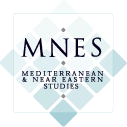 The reception of Hellenistic Judaism in the modern period The reception of Hellenistic Judaism in the modern period
The Persian empire was established by one of history's greatest conquerors, Cyrus II (539-530BCE). Beginning from a base in the Iranian plateau, his empire soon stretched over 4000km from east to west and 1500 km from north to south. Before long it included the Greek coast and Egypt. Despite the empire's fullest possible exploitation of subject territories, Cyrus' scribes legitimated his conquests by proclaiming him as liberator of peoples, gods and sanctuaries. The Bible also presents Cyrus as a restorer of Jerusalem's culture and religion claiming that Cyrus restored the Jewish God to his ancient sanctuary in Jerusalem. Many scholars regard the Persians as having overthrown the repressive policies of previous near Eastern empires; the neo-Assyrians for example, are often presented as intolerant and destructive of indigenous cultures. But to what extent have historians simply re-presented the ideology of the ancient Persian scribes and indeed of the biblical writers, projecting onto this ancient near Eastern empire modern notions of tolerance of ethnic and cultural difference? (This question will provide the focus of a symposium to be held in Trinity College in Spring 2009 which will be a co-operative venture between MNES, the Department of Biblical Studies, Sheffield University and the University of Liverpool.) (Dr Fitzpatrick)
|